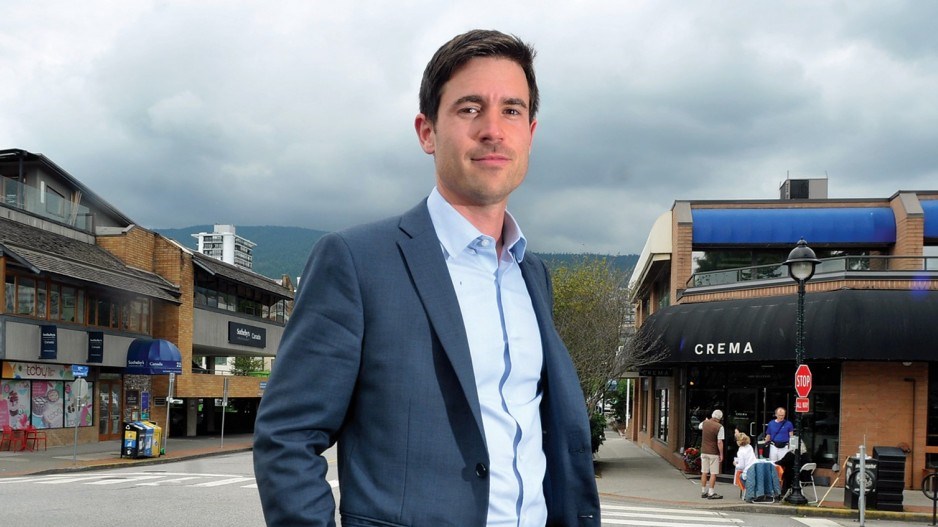A Liberal member of Parliament in British Columbia has called on his own governing party to quickly set a cap on oil and gas emissions without any loopholes.
MP Patrick Weiler, who represents West Vancouver—Sunshine Coast—Sea to Sky Country, sent a letter to federal cabinet challenging Canada to impose an emissions cap ahead of the 28th annual United Nations climate change conference scheduled to kick off in Dubai Nov. 30.
“I don’t think it's going rogue or against the party,” Weiler said. “This is something that we campaigned on. It's in mandate letters.”
“Even as a member of the governing party, we have a role of holding our own government accountable.”
Weiler's letter comes two years after Prime Minister Justin Trudeau mandated his environment and natural resources minister establish an emissions cap on the oil and gas sector so Canada can meet its emissions targets. In July 2022, Ottawa circulated a discussion paper outlining two potential regulations for the cap — one that would build off current carbon pricing requirements and another cap-and-trade system that would allow facilities to trade unused emission surpluses on an open market.
Draft regulations, which would provide evidence of the effectiveness of those plans, are expected to be released before the end of 2023, according to Weiler.
“I really have been urging for our government to move on this,” said the MP in an interview. “It now has been two years, so I want to make sure that we follow through on this, and ideally, have something that we can talk about when the world gathers next week.”
In May 2023, Weiler was among dozens of MPs targeted by protesters demanding politicians impose an emissions cap on the fossil fuel industry.
The protests coincided with a World Energy Investment report from the International Energy Agency (IEA) showing that in 2022, many fossil fuel producers made record profits because of higher fuel prices.
Most of the cash went to dividends, share buybacks and debt repayment. The industry’s spending on low-emissions alternatives — including clean electricity, clean fuels and carbon capture technologies — was less than five per cent of what it spent on fossil fuel production, said the IEA.
“We are seeing that play out in Canada,” Janetta McKenzie, a senior analyst at the Pembina Institute, said at the time. “Despite record profits over the last few years, those profits aren’t being put back into decarbonization.”
In his letter, Weiler urged government to set an emissions cap that “does not contain any extensions, exceptions or loopholes that will water down its impact.” He also called on cabinet to learn from B.C.’s fossil fuel emissions cap to apply effective plans in Ontario and Quebec.
“It's important that it's not watered down, that it's not unambitious,” Weiler said.
Announced in the spring of 2023, B.C.’s new energy action framework includes an oil and gas emissions cap that would force down the sector’s carbon pollution 33 to 38 per cent below 2007 levels by 2030. That’s largely expected to be achieved through making the extraction process more efficient so it doesn’t release as much methane, and electrifying of the liquefaction process with hydro power.
Weiler says a national oil and gas emissions cap should align with the Canada's Emissions Reduction Plan. Passed under the Net Zero Accountability Act in 2021, that plan requires emissions from the oil and gas sector to drop 42 per cent below 2019 levels by 2030.
Canada is far from reaching that goal. The country’s latest greenhouse gas emissions inventory found the oil and gas sector makes up 28 per cent of the national total, making it the largest and fastest growing source of carbon pollution in the country. In his letter, Weiler cites estimates from the Canadian Climate Institute suggesting Canada’s 2022 emissions have risen further since then.
Weiler said the lack of progress on reducing emissions in the oil and gas sector comes after big industry players pledged to decarbonize through the Pathways Alliance, a collaboration of the five largest fossil fuel producers in Canada.
In May, Canada’s Competition Bureau launched a formal inquiry into the advertising practices of Pathways Alliance following allegations the group made “misleading” claims around their plan to achieve net-zero emissions. At the time, Pathways Alliance vice-president of external relations Mark Cameron said "we strongly disagree" with the assertions made in the complaint.
But in his letter to cabinet, Weiler claimed that to date, 2022 and 2023 are “the two most profitable years for oil sands companies” and that in the two years since the Pathways Alliance has been launched “there have been no new investments in reducing oil sands emissions.”
“It is becoming increasingly clear that industry will not make the necessary investment unless regulated to do so,” Weiler wrote to cabinet.




